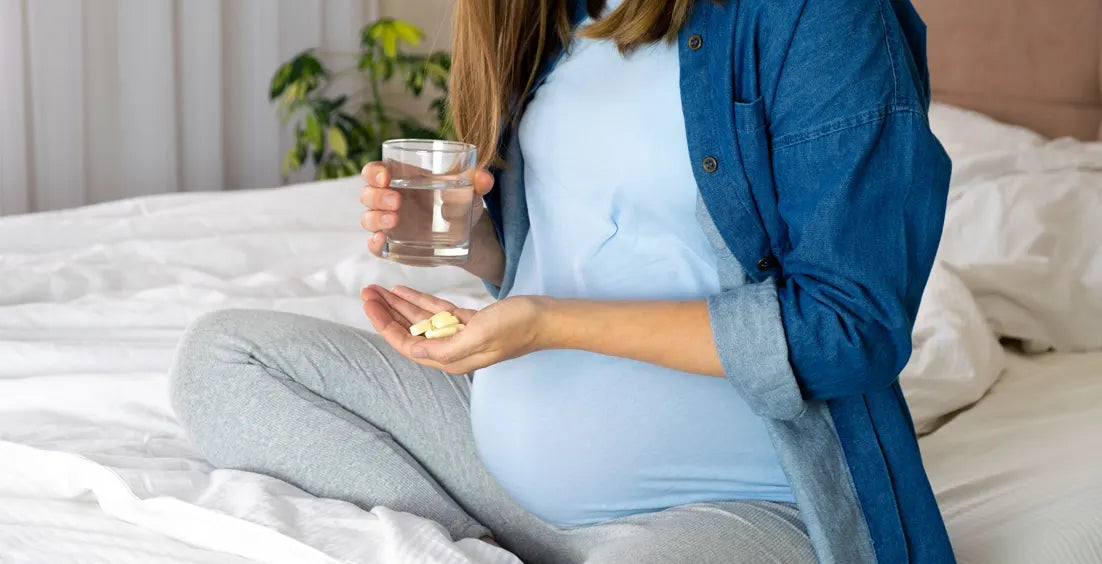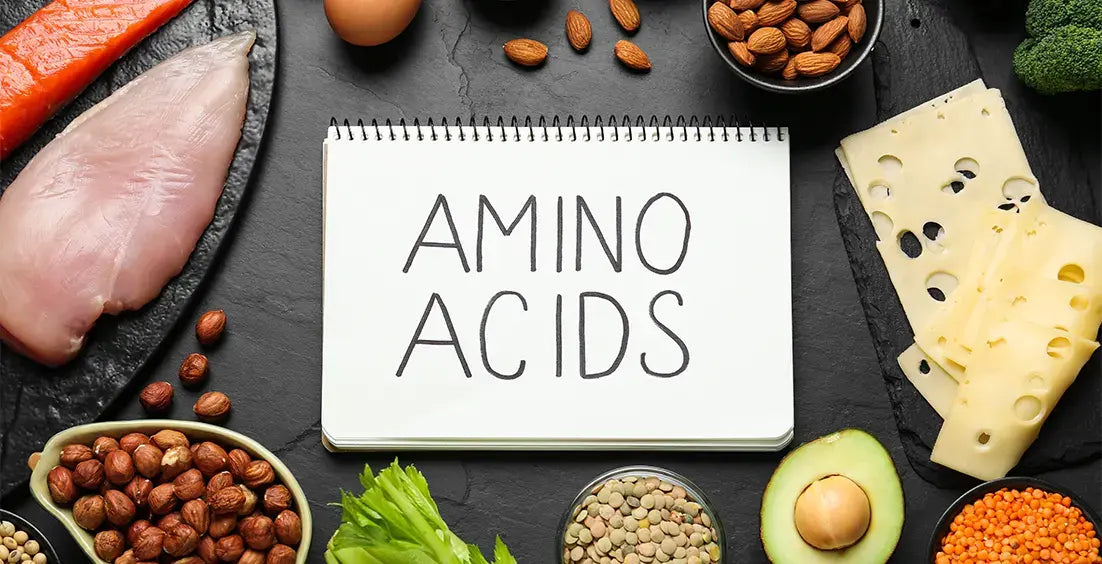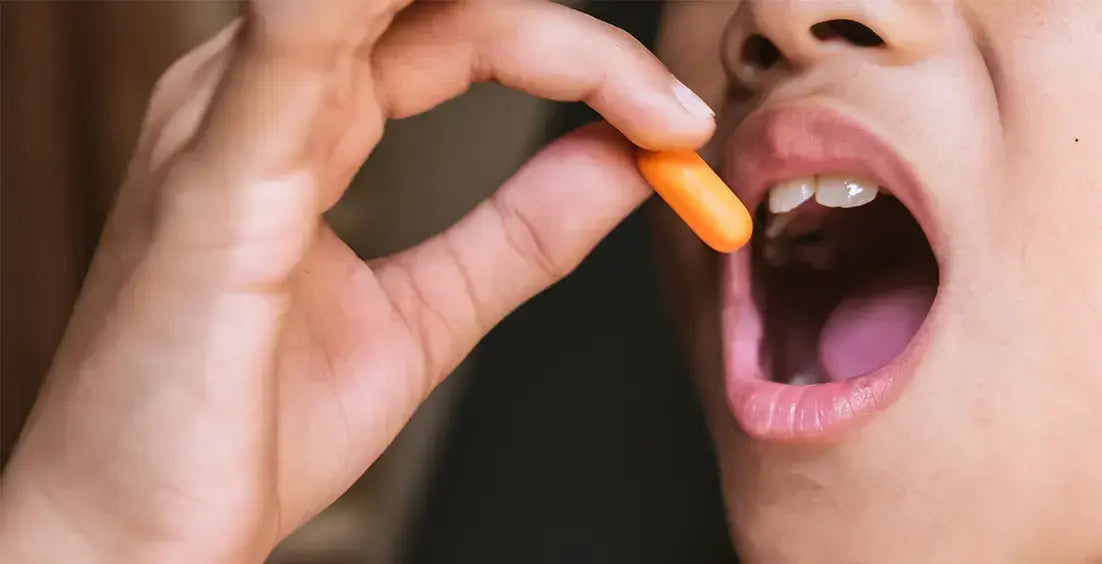Should You Take Multivitamins with Iron?
Multivitamins blend vitamins and minerals to meet your micronutrient needs. Let's explore into Iron's role in your body and its impact on health.

Iron isn’t just used by blacksmiths—it helps your blood transport oxygen throughout your body. Each cell needs a continuous flow of oxygen to function as it should. For this reason, iron deficiency anemia affects many people globally and has a big effect on your energy, focus, and overall health.
Believe it or not, anemia from low iron impacts around one-third of the global population. Eating little or giving blood frequently can cause iron deficiency in women, vegetarians, and other people with low dietary iron.
Do you find yourself tired, short of breath, or unable to do simple things like climb stairs? You may need more iron if you notice these things. It’s better to learn about iron’s function in the body, how to notice deficiency signs, and decide if including a multivitamin with iron is good for you, so you can pick the right supplement.
Understanding Two Forms of Iron in Food
The iron in our food is mainly found as heme iron or non-heme iron. Learning how they differ will help you absorb iron better and take care of your health.
Red meat, poultry, and fish are the foods that most often have heme iron. Your body uses it more easily, virtually like putting iron into a fast track. It is most important for preventing and dealing with iron deficiency anemia.
Alternatively, beans, lentils, spinach, dairy products, and fortified cereal are good sources of non-heme iron. Although it happens more slowly and less well, your body can take up more non-heme iron if you eat it with fruits or bell peppers.
Balancing how much iron you eat is important because your body does not easily remove any excess intake. Either too little or too much iron in the body can be dangerous for your health.
Warning Signs of Iron Deficiency
Weird Signs of Iron Deficiency
It goes without saying that iron deficiency does not start beating the drum and waving a red flag just to signal that you need it. But there are symptoms that your body might be sending to you to indicate that it is hungry for more iron.
Feeling constantly drained, like you can't quite catch your breath even after a good night's sleep? These could be signs of iron deficient anemia, a condition in which you lack sufficient iron to offer to your red blood cells to transport oxygen.
Here are some common symptoms to watch out for:
- Fatigue and weakness: This is a classic sign of iron deficiency. You might feel constantly tired, even after getting enough sleep.
- Pale skin: Iron is a key component of hemoglobin, the protein in red blood cells that carries oxygen. When iron levels are low, your skin might appear paler than usual.
- Shortness of breath: If your body isn't getting enough oxygen due to iron deficiency, you might experience shortness of breath, especially during physical activity.
- Cold hands and feet: Iron deficiency can affect circulation, leading to feeling constantly cold in your extremities.
- Headaches and dizziness: Low iron levels can sometimes cause headaches and dizziness, especially when standing up quickly.
Iron Supplements vs. Multivitamins with Iron
So, you've spoken to your doctor and confirmed an iron deficiency. Now comes the question: how to best address it? Two common options are iron-only supplements and multivitamins with iron. Let's explore the pros and cons of each:
Pros of Multivitamins with Iron- Provide comprehensive nutrient support
- Combine multiple supplements into one for overall health and convenience
- Ensure balanced intake
- Boost the immune system with vitamins D and C
- Enhance energy production through B vitamins
- Complement iron's role in red blood cell production
- Offer targeted treatment for iron deficiency anemia
- Are typically less expensive
- Reduce the risk of overconsumption
- Have fewer nutrient interactions
- Allow for precise dosage adjustments
- Risks of overconsumption and complex nutrient interactions
- Generally more expensive
- May not meet specific nutrient needs
- Potential for more side effects due to nutrient combinations
- Provide limited nutrient support
- Can cause gastrointestinal issues
- Lack of additional vitamins for energy and immune support
- Higher risk of iron overload if taken inappropriately
Kathleen M. Zelman, MPH, RDN, LD, a registered dietitian and nutrition expert with extensive experience in micronutrient supplementation and clinical nutrition, says that, "Multivitamins with iron can be beneficial for specific groups such as premenopausal women, pregnant individuals, and those with diagnosed iron deficiency. However, indiscriminate use may lead to iron overload or gastrointestinal issues. It's crucial to evaluate individual needs through clinical testing before supplementing, ensuring safety and efficacy."
Choosing the Right Option
Ultimately, the best choice depends on your individual needs and your doctor's recommendation. If you have a diagnosed iron deficiency, an iron-only supplement might be the most effective way to replenish your iron stores.
However, if your iron deficiency is mild or you have other potential nutritional gaps, a multivitamin with iron could be a good option. It's always best to discuss your specific situation with your doctor to ensure you're getting the right amount of iron for your needs. You can also understand by considering the following reasons while selecting the supplement.
When to Consider Multivitamins with Iron?
Given the role of iron in our bodies, there are some periods of life and conditions when it can be really difficult to get the necessary amount of this element from food. This is when multivitamin supplements containing iron may be beneficial:
- Pregnant Women: Iron consumption rises during pregnancy because of the increasing level of blood and the nutrients required for the development of a fetus. Multivitamins can actually help not only in terms of iron but with other vitamins that are required for a baby as well. Choosing the best vitamins for women can ensure that both mother and baby receive essential nutrients for optimal health.
- Young Children/Infants: Iron is very healthy for children since it contributes to the development of proper growth and brain health as well as in prevention of anemia. Special foods including iron-fortified infant cereals or multivitamin supplements may be advised for infants, toddlers, and other young children. By doing so they can supplement all other nutrient deficiencies including iron and in the process use multivitamins with Iron.
- Teenage Girls: Girls becoming women and adolescent or teenage girls even lose some iron every month through this process. The need for iron as well as other multivitamin nutrients can be replaced by an iron multivitamin, thus preventing iron as well as other deficiencies during these important years.
- Certain Medical Conditions: Several diseases, such as Crohn’s disease or celiac disease, or surgeries like gastric bypass affect the chance of absorbing iron from foods. Minerals like iron, when taken together with other vitamins in multivitamin supplementation, overcome the challenges posed by absorption and offer nutritional benefits.
- Plant-Based/Vegetarian Diets: Consumers of vegetarian or vegan products require paying more attention to ensure they get enough non-heme iron compared to heme iron found in meat.
You can also read: Iron Supplements for Vegans
In a normal, non-athlete, people's intake of iron at the dietary level of 8-18 mg each day is difficult to achieve due to the availability of the food sources. This is why a number of doctors do advise the taking of a plain multivitamin with iron as a simple insurance policy of sorts and with the right amounts.
Though they are not a cure for the deficiency, multivitamins with iron can be a means of doing no harm and maintaining an energy level in the nutrient-deprived state that results from a deficiency of Iron.
When to Choose Iron-Only Supplements?
While multivitamins with iron can be a convenient way to cover your bases, there are certain situations where a dedicated iron-only supplement may be more appropriate:
- Diagnosed Iron Deficiency: If you have iron deficiency anaemia or low iron stores, then your doctor will advise a high-dose iron supplement. These usually have 150 to 200% or even more of the stated daily iron value which can assist in dealing with the shortage promptly.
- Frequent Blood Donors: Estimates indicate that each blood donation cycles out approximately 200-250 milligrams of iron from body storage. Donors of blood may require the intake of iron supplements in the long run to avoid depletion of this important mineral.
- Heavy Periods: Women experiencing very heavy and prolonged menstrual periods lose more iron than is replenished from the food taken in the cycle. Extra iron can be obtained from iron multivitamins, covering this monthly loss.
- Absorption Difficulties: Some experience difficulties in the absorption of iron that is contained in supplements with other minerals. This is because things like calcium or zinc can compete with iron in an attempt to be absorbed by the body, hence reducing its availability. In these cases, such as anemia, an option is to take an iron-only pill and thus reduce interferences resulting from absorption rivalry.
Multivitamins are very helpful in the healthy storage of iron but single mineral and vitamin iron supplements are more suitable for deficiency; and enhanced dosing cases.
Recommended Daily Dosage of Iron
Iron is essential, but like most things in life, balance is key. Taking too much iron can actually be harmful, leading to a condition called iron overload. This is why it's crucial to understand the recommended daily dosage of iron and avoid exceeding those limits.
Here's a breakdown of the recommended daily intake (RDI) for iron based on age and specific situations:
| Age | Male | Female | Pregnancy | Lactation |
|---|---|---|---|---|
| Birth to 6 months | 0.27 mg* | 0.27 mg* | - | - |
| 7–12 months | 11 mg | 11 mg | - | - |
| 1–3 years | 7 mg | 7 mg | - | - |
| 4–8 years | 10 mg | 10 mg | - | - |
| 9–13 years | 8 mg | 8 mg | - | - |
| 14–18 years | 11 mg | 15 mg | 27 mg | 10 mg |
| 19–50 years | 8 mg | 18 mg | 27 mg | 9 mg |
| 51+ years | 8 mg | 8 mg | - | - |
What Food is Highest in Iron
What Food is Highest in Iron
Now for the fun part - exploring the delicious world of iron-rich foods! While iron supplements can be helpful in addressing deficiencies, incorporating iron-rich foods into your diet is a fantastic way to maintain healthy iron levels naturally.
Let's delve into some iron powerhouses, categorized by their iron source:
Heme Iron (Animal Sources):- Red Meat: Beef, lamb, and liver are excellent sources of heme iron.
- Poultry: Chicken and turkey also provide a good amount of heme iron.
- Fish: Some fish varieties, like tuna and sardines, are packed with iron.
- Beans and Lentils: These legumes are iron superstars, offering a good amount of non-heme iron and fiber.
- Tofu and Tempeh: Great options for vegetarians and vegans, providing protein and non-heme iron.
- Dark Leafy Greens: Spinach, kale, and collard greens contain non-heme iron, vitamins, and minerals.
- Fortified Cereals: Many breakfast cereals are fortified with iron, making them a convenient way to boost your intake.
- Nuts and Seeds: Almonds, cashews, pumpkin seeds, and chia seeds offer a good source of non-heme iron and healthy fats.
ALSO READ: Iron Supplements for Vegans
Maximizing Non-Heme Iron Absorption:Remember, non-heme iron absorption isn't as efficient as heme iron. But fear not! There are ways to optimize it:
- Pair your non-heme iron sources with vitamin C-rich foods like citrus fruits, bell peppers, and tomatoes. Vitamin C helps enhance iron absorption.
- Limit coffee and tea with meals, as they can hinder iron absorption.
By incorporating these iron-rich foods and maximizing absorption strategies, you can keep your iron levels in check and enjoy a delicious and nutritious diet.
Discover the top 10 iron-rich foods that help fight fatigue and boost your energy naturally. Learn about both plant-based and animal sources of iron to support your health and prevent anemia. Get inspired with simple ways to add these powerhouse foods to your daily meals.

Potential Downsides of Iron Supplementation/ Iron Overdose
Although, a lot of surveys approve the intake of iron as it is very important in our diet. But nobody just like that should take too much iron supplement. Taking iron supplements without needing them can potentially lead to some undesirable side effects:
- Constipation and Nausea: However, the side effects described most frequently by individuals using iron supplements include constipation and nausea particularly when one is using large doses. Some people find that the mineral can be rather abrasive to the digestive system.
- Iron Overload: There are no body processes in healthy individuals that allow it to be eliminated from the body when not required. Therefore if you often keep taking a lot of these iron supplements for a long time when you do not really need it, deposits start building up in the liver, heart, or brain. This eventually impairs the tissues and organs since the natural balance of the iron within the extremities is disturbed.
- Interference with Other Minerals: This is because if one micronutrient is to be absorbed, it has to compete with other micronutrients and therefore high iron intake will hinder the absorption of other minerals such as zinc and copper. Such a state can inevitably contribute to the lack of certain nutrients in the body.
- Drug Interactions: They may thin the blood and interfere with the effectiveness of many medications or they can decrease the iron content in the body. Some of them are tetracycline antibiotics, levothyroxine used to control thyroid, as well as anti-anxiety/ anti-seizure medications.
So although it is crucial to get enough iron, flinging open the doors of iron supplements without a doctor’s approval can sometimes be dangerous. It is always important that you should consult your doctor before going for iron pills for whatever, whether for short-term consumption or the long term.
READ MORE - Iron Supplements for Women's Health
Conclusion
Iron is important for the body to function properly. It’s necessary to keep things balanced, so you don’t experience health problems.
Getting iron from different sources, whether animal or plant-based, is generally enough for most people every day. Even so, there are times in life and situations where taking extra iron can be helpful.
Should you have any signs of iron deficiency, do not try to diagnose or treat the problem yourself. Seeing your healthcare provider and getting your blood tested for iron is the best approach. In this way, you can learn if multivitamins or specific iron supplements are needed in your diet.
Talking about your iron needs with a health professional is the most secure way to keep your iron intake healthy. Iron deficiency can be a problem, though acting early and managing your condition well can help keep it from affecting you greatly.
FAQs
Our Top Picks
NutriMax Essentials - Advanced Daily Multivitamin
4.8 / 5.0
(188)188 total reviews
About WOWMD Staff
The WOWMD Staff category features a diverse team of writers, each bringing specialized knowledge in areas such as nutrition, fitness, wellness, and more. Articles in this category benefit from insights provided by multiple experts. All content is peer-reviewed and regularly updated to ensure compliance with our editorial standards.
Popular Stories
- How to Choose the Best Kids Multivitamin: Top 5 Tips
- How Much Creatine Should I Take? Weight & Fitness Goals
- Amino Acids: Health Benefits, Deficiency Signs & Food Guide
- What Vitamins Should Kids Take? Safe and Effective Choices
- Vitamin C Dosage for Kids: Prevent Deficiency, Boost Health
- What is Creatine? Benefits, Myths, and How to Use It
References
- Iron deficiency anaemia: pathophysiology, assessment, practical management PMC (nih.gov)
- Molecular Mechanisms of Iron and Heme Metabolism (nih.gov)
- Non-heme iron enzymes: contrasts to heme catalysis (nih.gov)
- Iron overdose epidemiology, clinical features and iron concentration-effect relationships: the UK experience 2008-2017 (nih.gov)
- Iron Deficiency Anemia: A Common and Curable Disease PMC (nih.gov)
- Multivitamin/mineral Supplements (nih.gov)
- Iron Supplementation (nih.gov)
- Iron-Deficiency Anemia (hematology.org)
- Iron Absorption: Factors, Limitations, and Improvement Methods PMC (nih.gov)
- Iron (nih.gov)
Evidence Based Research
This WOWMD content has been reviewed, as well as checked for facts, so as to guarantee the best possible accuracy.
We follow a strict editorial policy, especially related to the sources we use. Our articles are resourced from reputable online pages, with research drawn from academic institutions and peer-reviewed studies. You can click on the numbers in the parentheses (1, 2, etc.) and check out those references.
The feedback form on this page can be used to report content that is not accurate, up-to-date or questionable in any manner.
We do NOT intend for the information presented through our articles to replace the medical relationship with a qualified physician, nor does it represent specialized advice.


 Alpha Man Power Pack
Alpha Man Power Pack All-Day Fat Burn Trio
All-Day Fat Burn Trio Better Immunity Bundle
Better Immunity Bundle  Calm & Sleep Duo
Calm & Sleep Duo Cognitive Health & Vision Combo
Cognitive Health & Vision Combo Complete Weight Loss Bundle
Complete Weight Loss Bundle Core Vitality Trio
Core Vitality Trio Energy Booster Combo
Energy Booster Combo Focus Fuel Trio
Focus Fuel Trio Glow & Balance Duo
Glow & Balance Duo Health Balance Trio
Health Balance Trio Heart Care Bundle
Heart Care Bundle Joint Health Support Combo
Joint Health Support Combo Men's Immunity & Prostate Health Bundle
Men's Immunity & Prostate Health Bundle Metabolism Boost Duo
Metabolism Boost Duo Natural Skin Care Bundle
Natural Skin Care Bundle Peak Performance Trio
Peak Performance Trio Relax & Recharge Duo
Relax & Recharge Duo Skin Detoxification Bundle
Skin Detoxification Bundle Smart Energy Trio
Smart Energy Trio Stress + Energy + Wellness Combo
Stress + Energy + Wellness Combo  Total Burn Ignite Trio
Total Burn Ignite Trio Total Harmony Pack
Total Harmony Pack Vitality Power Duo
Vitality Power Duo Workout Supplements Combo
Workout Supplements Combo




































